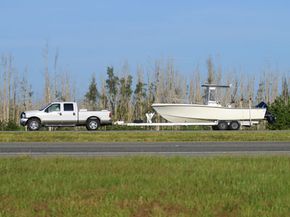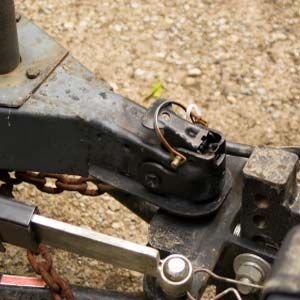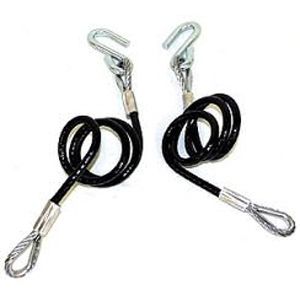Temptation is all around us. That doughnut looks pretty good, doesn't it? You know you want it, even though you know you shouldn't. Go ahead and eat it anyway -- and say hello to heart disease, obesity and diabetes! Sure, you could skip out of work after lunch to bet on the ponies at the track. No one will even notice you're gone, but how do you explain to your boss where you were after you win a few bucks (not enough to justify quitting your job, unfortunately) and the local paper runs a feature on you and your windfall?
Temptation also exists with towing. You know how much your vehicle's towing capacity is; it's in your owner's manual. Unfortunately, you didn't consider your towing capacity when you bought that new boat. Now, with your boat loaded on a trailer and your truck's ball hitch just inches away from being coupled, you're having a hard time resisting the temptation to take it to the lake.
Advertisement
Don't do it! There could be a world of trouble awaiting you. Let's say you're driving at a reasonable speed when a pedestrian steps off the curb in front of your truck. Because of your overweight load, you're going to have a really hard time stopping. The velocity created by the momentum of your rear-heavy trailer and boat could overcome the stopping power of your brakes, sending you sailing right into the hapless pedestrian. It could also overcome your trailer hitch coupling and send the boat careening into your back seat as well.
Even if you do make it to the lake, you'll find trouble at the boat launch. As you back down the incline, the weight of the trailer and boat could pull your truck into the water or cause the front of your truck to leave the ground -- not a good beginning for a day at the lake.
There are also a plethora of mechanical problems with towing a load that exceeds your vehicle's listed capacity. Whether you're towing a boat or a load of bricks, you're going to wear out your vehicle quickly if you exceed its towing capacity. Find out how on the next page.
Advertisement



